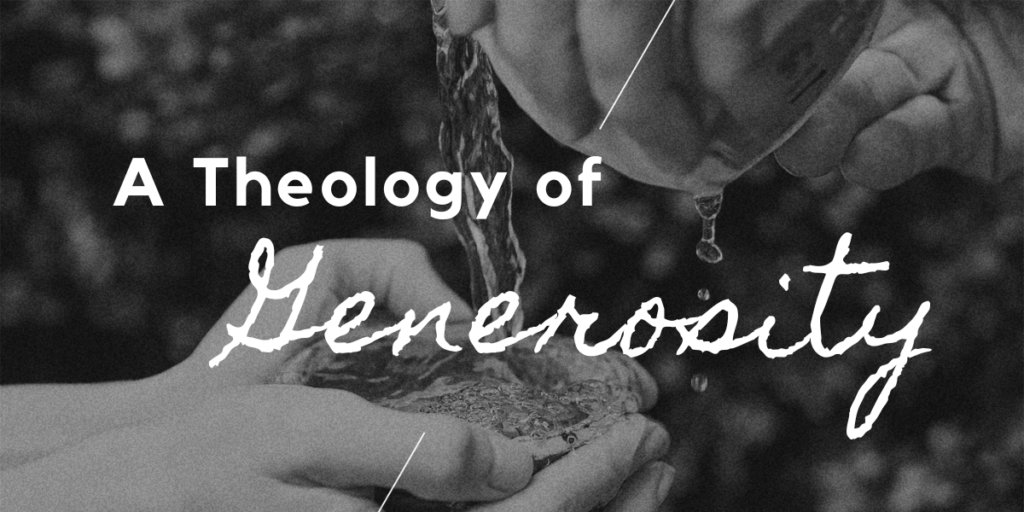
Generosity: A Case Study

 If you have ever been to New York City, I hope you stopped at a magnificent building on 5th Avenue right between 50th and 51st: St. Patrick’s Cathedral. Since 1879, St. Patrick’s has stood as a bastion of Christ’s Kingdom in the middle of an increasingly secular city. The remarkable thing about this building is the effort it took to complete the project. The construction was not financed by wealthy New Yorkers, though they certainly contributed. Instead, funding came from the generosity of St. Patrick’s parishioners across the economic spectrum. Everyone from the poorest Irish immigrant to the wealthiest New York banker generously gave to bring the dream of a cathedral in New York City to life. Not everyone gave equally, but everyone sacrificed equally.
If you have ever been to New York City, I hope you stopped at a magnificent building on 5th Avenue right between 50th and 51st: St. Patrick’s Cathedral. Since 1879, St. Patrick’s has stood as a bastion of Christ’s Kingdom in the middle of an increasingly secular city. The remarkable thing about this building is the effort it took to complete the project. The construction was not financed by wealthy New Yorkers, though they certainly contributed. Instead, funding came from the generosity of St. Patrick’s parishioners across the economic spectrum. Everyone from the poorest Irish immigrant to the wealthiest New York banker generously gave to bring the dream of a cathedral in New York City to life. Not everyone gave equally, but everyone sacrificed equally.
Nearly two thousand years before St. Patrick’s was even a sketch in some architect’s imagination, another remarkable church project was accomplished. Through the generosity of the believers in Macedonia, the churches in Judea survived a terrible economic downturn and deadly famine. And just like the parishioners of St. Patrick’s, the financial support did not come from the wealthy end of the spectrum. It came from the support of believers across the fiscal divide.
The project was a massive undertaking that was likely to fail. Many of the Christians who supported the project had never met the members of the churches in Judea. Many of these Christians were new believers, having just come to faith 2-3 years prior. Imagine joining the Faith and almost immediately being asked to give money to people you have never met in a city you have never visited that was located 1,500 miles away. Not likely to happen, right? To make matters worse, the giving Christians were not swayed by cleverly crafted PowerPoints or heart-moving video testimonials. Nevertheless, these infant believers gave generously.
So, what led to this impressive accomplishment? What motivated these remote Christians to give? In 2 Corinthians 8 – 9, Paul appealed to the church and laid out three reasons why the church should charitably support the cause. In doing so, he left us with a case study for generosity. First, he shows that giving starts with the mindset that we give to the Lord—not a cause or building project. Second, we give because Christ modeled sacrificial giving in His life. Third, he shows that generosity flows from an understanding that we are mere stewards—not owners—of our wealth. When we are generous, we are generous not with our own resources but with the resources God has given us to steward. Let’s look at Paul’s insights more closely.
1. We give to the Lord.
The Corinthians, by and large, were wealthy individuals. The city was a double seaport town, allowing lots of commerce and trading. We might think that when Paul was appealing to the Christians in Corinth, he would have pointed to another wealthy city, like Ephesus, as an example of generous giving. Instead, Paul highlighted the communities in Philippi, Berea, and Thessaloniki, which were generous despite their “extreme poverty” (1 Cor 8.2).
![]() We might think Paul is using a guilt tactic here, as if he were saying, “Look at what these poor Christians are doing. Don’t you think you wealthy Corinthians can give something too?” However, that is not his reason for mentioning these churches. They are shining examples of generosity in Paul’s mind because, as Paul put it, “They gave first to the Lord and then by the will of God to us.” The motivation for their generosity was not that they felt terrible for the impoverished Christians in Judea or because they felt obligated to give. Instead, they gave because they saw it as a way of giving to the Lord and supporting the work of His Kingdom. Paul encouraged the Corinthians to find the motivation to give generously based on the newly transformed lives given to them by the Lord and in their relationship with Him.
We might think Paul is using a guilt tactic here, as if he were saying, “Look at what these poor Christians are doing. Don’t you think you wealthy Corinthians can give something too?” However, that is not his reason for mentioning these churches. They are shining examples of generosity in Paul’s mind because, as Paul put it, “They gave first to the Lord and then by the will of God to us.” The motivation for their generosity was not that they felt terrible for the impoverished Christians in Judea or because they felt obligated to give. Instead, they gave because they saw it as a way of giving to the Lord and supporting the work of His Kingdom. Paul encouraged the Corinthians to find the motivation to give generously based on the newly transformed lives given to them by the Lord and in their relationship with Him.
2. Christ modeled sacrificial giving.
Paul then moves on to Jesus as an example of sacrificial giving. In verse 9, he wrote, “For you know the grace of our Lord Jesus Christ, that though he was rich, yet for your sake, he became poor so that you by his poverty might become rich.” Because we are modeling our lives after Jesus’s, we need to form ourselves in the same self-sacrificial pattern he left for us. In other words, we measure our generosity not by how much others give but by how much Jesus gave. We give because Jesus gave.
To be clear, Paul was not saying we give because we have an obligation to Jesus. He said that when we aim to follow Jesus’s life as closely as possible, we become more generous and willing to be self-sacrificial.
3. Stewards of our wealth.
 Paul concludes his appeal to the Corinthians in chapter 9 with these words:
Paul concludes his appeal to the Corinthians in chapter 9 with these words:
“He who supplies seed to the sower and bread for food will supply and multiply your seed for sowing and increase the harvest of your righteousness. You will be enriched in every way to be generous in every way, which through us will produce thanksgiving to God. For the ministry of this service is not only supplying the needs of the saints but is also overflowing in many thanksgivings to God.” (2 Cor. 9.10-11)
Paul was reminding the Corinthians that the wealth they had accumulated was ultimately entrusted to them by God. They are merely stewards of the wealth on God’s behalf. This way of thinking about wealth has challenged each generation of Christians. However, when we realize that God is the one who ultimately blesses us with the resources we have, then we can begin to see our wealth in the proper light.
While we aren’t supporting a fledgling church or building a new cathedral in NYC, we are all invited to participate in God’s mission and Kingdom. Our participation means that he invites us into generous giving. God calls us to be generous where we are with what we have. Our generosity flows from a heart that wants to give to the Lord, a desire to model our lives after Christ’s own, and seeing our resources as God’s resources entrusted to us for stewardship.
Fr. Chase
